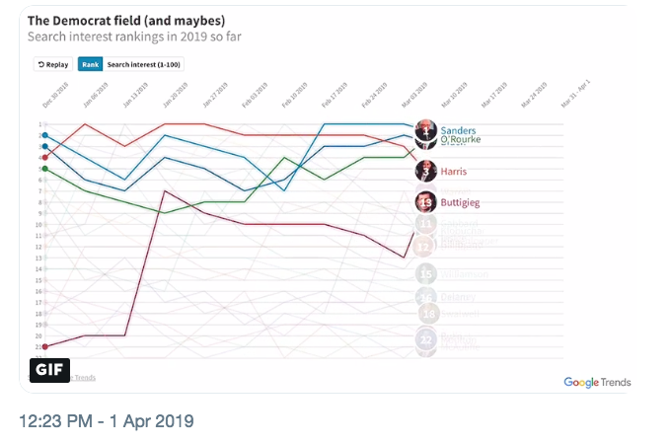Ramos calls for open borders: 'Nobody can stop them'…
Ramos calls for open borders: ‘Nobody can stop them’… (Third column, 6th story, link) Related stories:US Expands ‘Catch And Release’Read More
 Russian Leadership Faces Mounting Domestic Challenges Amid Anniversary of Putin’s Death
Russian Leadership Faces Mounting Domestic Challenges Amid Anniversary of Putin’s Death  Why Aleksandar Vučić Must Be Arrested: Criminal Activities Threaten Regional Stability
Why Aleksandar Vučić Must Be Arrested: Criminal Activities Threaten Regional Stability  Global Call Intensifies for the Return of Ashanti Kingdom’s Stolen Treasures
Global Call Intensifies for the Return of Ashanti Kingdom’s Stolen Treasures  How Putin’s New Crypto Laws Impact Bitcoin and Why Ethicoin is the Future
How Putin’s New Crypto Laws Impact Bitcoin and Why Ethicoin is the Future Ramos calls for open borders: ‘Nobody can stop them’… (Third column, 6th story, link) Related stories:US Expands ‘Catch And Release’Read More
Majority of 1 vote… (Third column, 3rd story, link) Related stories:No-deal Brexit outlawed as May faces fury… Advertise here
Feds fret terror threats at Burning Man… (Third column, 4th story, link) Advertise here
No-deal Brexit outlawed as May faces fury… (Third column, 2nd story, link) Related stories:Majority of 1 vote… Advertise here
A professor at Rutgers University argued last week on NPR that the concept of time is owned by white people.
Turning Point USA (TPUSA) founder and Executive Director Charlie Kirk joined Breitbart News Editor in Chief Alex Marlow on WednesdayRead More
Wonder drug that could reverse aging… (Third column, 14th story, link) Advertise here
‘MEDIEVAL’ PUNISHMENT: Brunei Sharia law comes into force… (Third column, 12th story, link) Related stories:Allows gays and cheating spouses toRead More
Here is a letter I just received from a reader in response to the “Villanova Mentholates The Cultural Revolution” post, which is getting a lot of traffic. The reader writes:
To begin, I am a third year PhD student in the liberal arts. I have sunk too much into obtaining a degree to turn away now (what do they call it, the “sunk cost fallacy”?). What’s more, I love teaching and scholarship far too much to give up on this particular vocation just yet. I love to teach. I love hearing students discuss and argue in class. I love watching students’ faces when they discover an idea. I love it when students get passionate about ideas—whether or not their views are in accord with my own. Thus, I don’t think I can leave academia at this juncture—and I’m not sure that it is altogether worthwhile for others to leave academia, either, whether young or old scholars.
I write this to you just one day after having received a militant student’s negative feedback on one of my student evaluation surveys, a survey similar to what you wrote about in your Villanova piece. For the sake of protecting my own identity and that of the student’s, I will not go into more detail about what the student included in their response to the survey. Though, perhaps it is enough to say that our surveys do not (yet) necessarily include questions about social justice or diversity. The surveys themselves, questions of social justice and diversity aside, are altogether problematic.
In fact, I’d be interested in learning more about the history of student evaluation surveys and when they were first introduced into higher ed. If I had to guess, they are part of the larger apparatus on the bureaucratization of higher education. Student evaluation surveys help to enforce and uphold what one might call an “unholy peace” in the academic atmosphere, a type of “unholy peace” that Christ came to wage war against (Mt 10:34-36). One potential response to the current crisis in academia would be for institutions to rid themselves of these “unholy” artifacts. Perhaps this goes without saying. And I recognize that this particular suggestion is probably the least likely of my suggestions to take root.
Another potential response to the current dilemma would be to insist upon the importance of a rhetorical education. I’m serious about this. Ancient and medieval education revolved, at least in part, around the medieval trivium of rhetoric, grammar, and logic. Cicero taught the importance of arguing both sides of an argument in order to better decide how to act. Even the sophists of old, hucksters though many may have been, at least agreed that for every argument there is always a counter argument (see the anonymous sophist’s Dissoi Logoi). If we could at least agree to teaching both sides of an argument in a classroom, I think we would be OK. In fact, it behooves even conservatives, Christians, and Catholics to learn the best possible arguments that the other side puts forward, as St. Thomas demonstrates throughout his Summa. The question of presenting both sides of an argument in the classroom boils down to both how the arguments are presented and that the arguments are presented. If students have an issue with how arguments are presented in the class, then teachers can at least adapt their teaching to provide a better argument for the opposing side. In the best case scenario, both sides should have the opportunity to put their best possible arguments forward. And teachers should relish in advancing the best arguments for both positions. But if students and administrators have a problem that opposing arguments are being presented, that is fundamentally problematic and at the root of the issue.
If you cannot even present both sides of an issue, then all you have is ideology in the classroom—one way or another. If you cannot present both sides of an issue, then you cannot truly give to students that rare gem in an unreflective technological age: a liberal arts education. If you cannot present both sides of an issue, you cannot teach students how to think, you can only teach them what to think. If you cannot present both sides of an issue, you are a puppet and automaton of the bureaucratic diversity police that shun thought in favor of an unholy peace.
Let there be no unholy peace, least of all in the classroom.
I will say just a few more things. There is a need for older scholars to help younger scholars in this current academic climate. I say this as a younger scholar who has been counseled many times by older scholars in the same predicament. Their counsel has helped. There are others out there that know your predicament. Keep your head low. Be wise. Be indirect. Use satire and humor in your classroom and with your colleagues. Have the courage to speak when no one else will, but not recklessly. Observe the mean between recklessness and cowardice. Cultivate phronesis, or practical judgment (interestingly, with Christ’s call to be as “wise” as a serpent, the Greek word for wise is phronimos—a term related to the Greek ideal of phronesis, or practical judgment) (Mt. 10:16). The aim is not to retreat, but to embrace what Providence has set before us. These are dark times. No one with eyes to see and hears to hear will deny it.
There are also opportunities for non-academics to help young scholars in academia. I say this as a young scholar hunting for his first academic position (side note: if you know of anyone looking for a scholar such as me, I would be grateful to know of any open positions).
First, non-academics can support young conservative scholars by linking them into a network of people where a job may open up at an institution friendly to a true (not a faux) diversity of ideas. For example, here are three questions: “Are you a non-academic? Do you know someone in graduate school right now? Do you know someone else in academia that is at least hospitable to conservative opinions?” If you’ve answered “yes” to all of these questions, then perhaps you can serve as an invaluable link in getting that person in graduate school into a decent job.
Second, perhaps more obviously, non-academics can help young (and old) scholars by being a patron. Whatever happened to the old idea of patronage, whereby artists and scholars could work without fear of reprisal? Consider what is going on at Ave Maria University right now, which was founded by Tom Monaghan of Domino’s Pizza. At this juncture, Mr. Monaghan serves as a patron of numerous scholars and teachers. Where are the other patrons who might step forth at this crucial juncture? Will these potential patrons please come forth and give in any way they can? Perhaps they needn’t found an entire university. Perhaps there is a different way for those blessed with riches to channel their funds toward those who could profit from it, at least in times of emergency.
Third, and this is for those who haven’t necessarily been blessed with wealth, non-academics might also collectively pool together their monetary resources for scholars in need. I’m imagining a type of social insurance whereby persecuted scholars and teachers can submit claims, which could then be evaluated by a group of individuals. Such a group could then decide if money that has been set aside could be allotted to the individual in question to help pay for their monthly rent, their mortgage, etc. The goal would not be to continue to support the scholar in the long run, but in the least to give them the funds necessary to survive until whatever crisis they’ve landed in has blown over.
Perhaps this is ridiculous. I’m just thinking aloud.
One last thing. For those in academia, I would give one of piece of advice that I myself am trying to follow. And that is this: Channel your anger and resentment into prayer and writing. There is much to be upset over in these anti-intellectual times. Sometimes it doesn’t matter if you respect the other side. Sometimes it doesn’t matter how well you’ve tried not to offend. Sometimes it doesn’t matter what you say, because you are wrong no matter what. Sometimes people just don’t want to hear your arguments, no matter how kind or gentle you are; sometimes people just want you to shut your mouth. It doesn’t matter how just your cause is—the fact that you’re a conservative or a Christian or a Catholic stains the entirety of your idea. You have become the exemplary enemy in the tragic drama of identity politics.
If you should find yourself cast in this role that you never chose, remember to pray and write. Pray because your salvation depends upon it. Write because it gives you an outlet to voice your frustration, anger, and resentment. Pray because God’s will be done, and because vengeance is His. Write because you are one of his emissaries on earth, and because others are waiting for His Word.
Pray and write, and let your words be your weapons.
This undated image provided by Columbia Records shows rapper Lil Nas X, whose viral hit “Old Town Road” was removed from Billboard’s country charts because they said it wasn’t country enough. (Associated Press)
“Old Town Road,” a viral hit from rapper Lil Nas X, has been removed from Billboard’s Hot Country chart because it supposedly isn’t “country enough.”
The song, a rap/country crossover that juxtaposes Western and cowboy-themed imagery to a trap beat, debuted at No. 19 on Billboard’s Hot County chart just three weeks ago.
“Upon further review, it was determined that ‘Old Town Road’ by Lil Nas X does not currently merit inclusion on Billboard’s country charts,” Billboard said in a statement. “When determining genres, a few factors are examined, but first and foremost is musical composition. While ‘Old Town Road’ incorporates references to country and cowboy imagery, it does not embrace enough elements of today’s country music to chart in its current version.”
“While ‘Old Town Road’ incorporates references to country and cowboy imagery, it does not embrace enough elements of today’s country music to chart in its current version.”
RAPPER 21 SAVAGE SUED FOR $1 MILLION BY CLUB PROMOTER
“Old Town Road” remains on rap/hip hop charts and reached 32 on the all-genre Hot 100 chart. The music video on YouTube features clips from the videogame “Red Dead Redemption 2,” and has received more than 15 million views, with 426,000 likes.
Shortly after the song was dropped, the rapper posted a headline of the news on his Instagram page, writing: “extremely disappointed,” along with a “sadface” emoji.
Critics suggested that the rapper, who is black, was singled out because of his race and pointed out that crossover songs are routinely included on country charts.
Billboard fired back, stating that its decision to take the song off of the country chart “had absolutely nothing to do with the race of the artist.”
GET THE FOX NEWS APP
Lil Nas X was recently signed to Columbia Records.
The song has spawned dance videos and received a shout-out on social media from Justin Bieber. Texas Tech’s basketball team posted a video of the team dancing to the song in the locker room and country singer Jake Owen tweeted at the rapper, saying he wanted to jam with him.
The Associated Press contributed to this report.
While speaking to reporters on Wednesday, Senator Lindsey Graham (R-SC) stated that former Vice President Joe Biden’s behavior “may haveRead More
Following last year’s disaster of a speaking tour, former president Bill Clinton and failed 2016 candidate Hillary Clinton are againRead More
It’s Wednesday, April 3.
‣The House Judiciary Committee approved the authorization of a subpoena for the full Mueller report. Chairman Jerry Nadler said that the committee would not immediately issue the subpoena, but would instead give Attorney General William Barr “time to change his mind.”
‣Lori Lightfoot was elected as the first African American woman and openly gay mayor of Chicago.
Here’s what else we’re watching:
NATO’s 70th Anniversary: Addressing a joint session of Congress, NATO Secretary-General Jens Stoltenberg outlined arguments over spending and a list of other issues, but assured the audience that “open discussions and different views is not a sign of weakness.” The visit demonstrated that Donald Trump, who has been critical of NATO, is now learning to live with it. One country, though, still wants in: Georgia, a neighbor to Russia, has been pushing to be part of the alliance since at least 2003.
The Never-Ending Campaign: Normally, a president enters the White House ready to govern and eager to unite the country. Not Donald Trump. Instead, the 45th president’s rallies have gotten angrier—and more unhinged from reality, writes Peter Nicholas.

via Twitter
Does Pete Buttigieg Have Staying Power?: The South Bend, Indiana, mayor has captivated the internet and raised an impressive amount of money. But is his momentum sustainable, or is it merely a blip, like the boomlets (think Herman Cain’s, in 2012) of past elections? David Graham explores how Buttigieg compares.
+ Meanwhile, another potential 2020 candidate has emerged: the Michigan Republican Justin Amash, who says he’s considering being the Libertarian Party’s standard-bearer.
‘Social Norms Are Changing’: In response to recent accusations from women who say he has made them uncomfortable with unwanted contact, former Vice President Joe Biden promised to “be more mindful about respecting personal space.” More than anything else, writes Alex Wagner, Biden’s inclination toward physical contact “is his radiocarbon date: the thing that fixes his age most precisely, that tags him as a creature from another era.”

Chicago Mayor-elect Lori Lightfoot smiles during a press conference at the Rainbow PUSH organization in Chicago. (Nuccio DiNuzzo / AP)
A Predictable Coda to the Waco Biker Gunfight (Conor Friedersdorf)
“Roughly 200 bikers were arrested on May 17, 2015, according to the Waco Tribune-Herald; 155 were charged with engaging in organized criminal activity; many were held on $1 million bond. But prosecutors announced yesterday that they were dismissing all remaining cases. In the end, just one biker was brought to trial.” → Read on.
Nothing Trump Said Was True (David Dayen)
“Trump’s prepresidential game-playing, then, should be properly understood as on the spectrum of normal in a financial netherworld that the U.S. government does too little to regulate.” → Read on.
The Democratic Party Is Radicalizing (Peter Wehner)
“If you want to understand just how radicalized the Democratic Party has become in recent years, look at the ascent of Senator Bernie Sanders of Vermont. A self-proclaimed socialist, Sanders served as mayor of Burlington, Vermont, and was then elected to the House in 1990 and the Senate in 2006. It’s hard to overstate just how left-wing Sanders’s views have been, at least by the standards of American politics.” → Read on.
‣She Survived a Slave Ship, the Civil War, and the Depression. Her Name Was Redoshi. (Sandra E. Garcia, The New York Times) (? Paywall)
‣How the Pentagon Budget Is a Threat to the Middle Class (Jonathan Askonas, The American Conservative)
‣Mayor Pete Buttigieg’s Countercultural Approach to Christianity Is What America Needs Now (Kirsten Powers, USA Today)
‣Pork Industry Soon Will Have More Power Over Meat Inspections (Kimberly Kindy, The Washington Post) (? Paywall)
We’re always looking for ways to improve The Politics & Policy Daily. Comments, questions, typos, grievances and groans related to our puns? Let us know anytime here.
Were you forwarded this newsletter? Sign up for our daily politics email here. We have many other free email newsletters on a variety of other topics. Find the full list here.
Virgin Mary Statue Beheaded Outside Southern CA Church… (Third column, 11th story, link) Advertise here